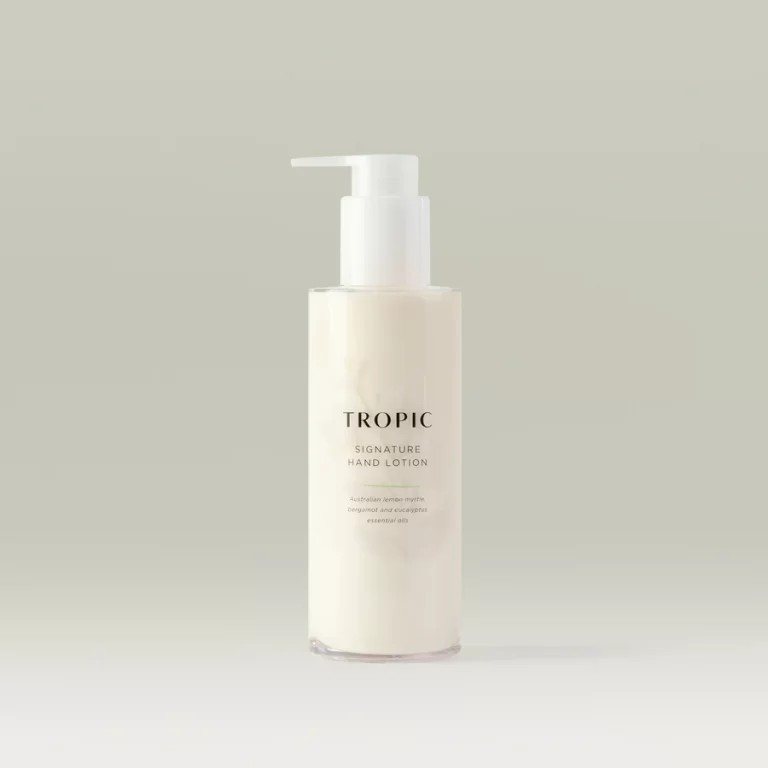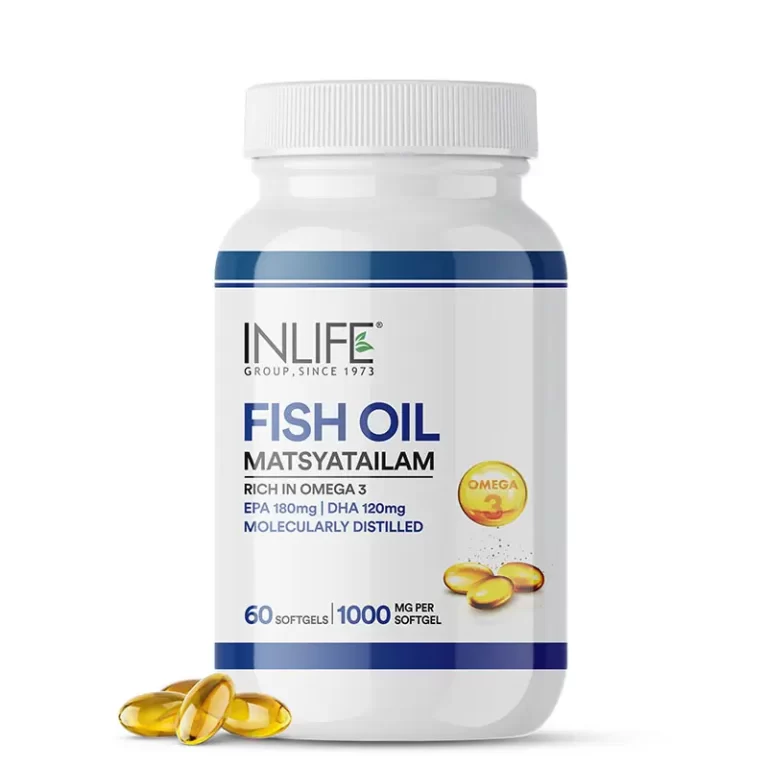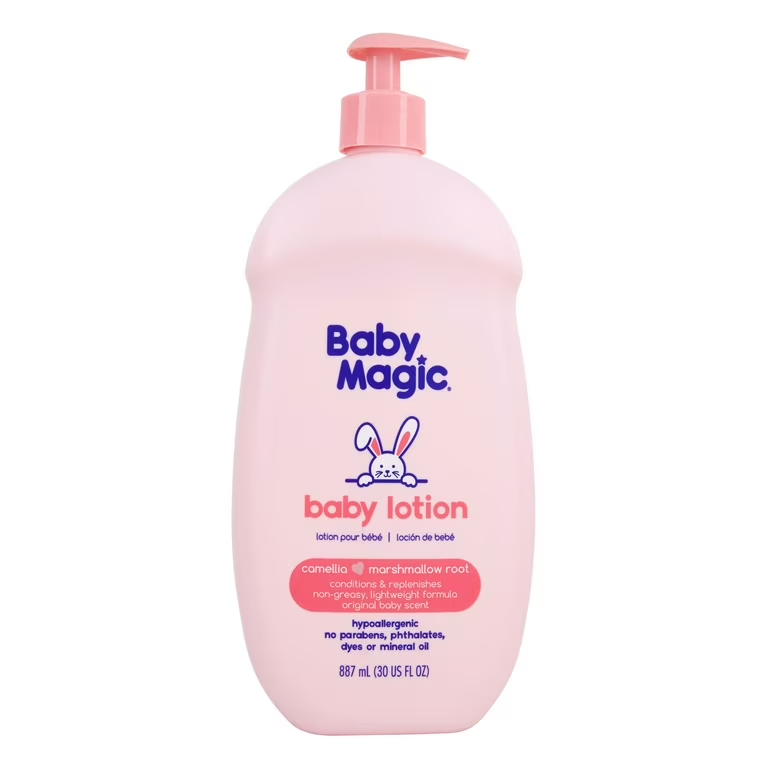
Gentle Baby Lotion Picks for Sensitive Skin
Introduction to Baby Lotions for Sensitive Skin
When it comes to caring for your infant, choosing the right baby lotion is crucial. Sensitive skin requires gentle products that not only moisturize but also protect without causing irritation. Baby lotions for sensitive skin are specially formulated to provide the nurturing touch little ones need.
Babies are born with delicate skin, which is more prone to dryness and rashes than adult skin. It’s essential to select a baby lotion that addresses these concerns while offering comfort. A suitable lotion can offer a shield against various potential skin troubles, while keeping your baby’s skin soft and supple.
Finding the perfect baby lotion involves understanding the needs of sensitive skin. It should be hypoallergenic, free from harsh chemicals, and include nurturing ingredients. With the right product, your baby’s skin care routine can become a soothing ritual that helps to keep their skin healthy and happy.
In summary, baby lotions designed for sensitive skin play a pivotal role in infant skin care. They must be gentle, protective, and provide just the right level of hydration. The following sections will guide you through the essential ingredients to look for, how to spot signs of sensitive skin, and the top-recommended products that are safe and effective for your little one.
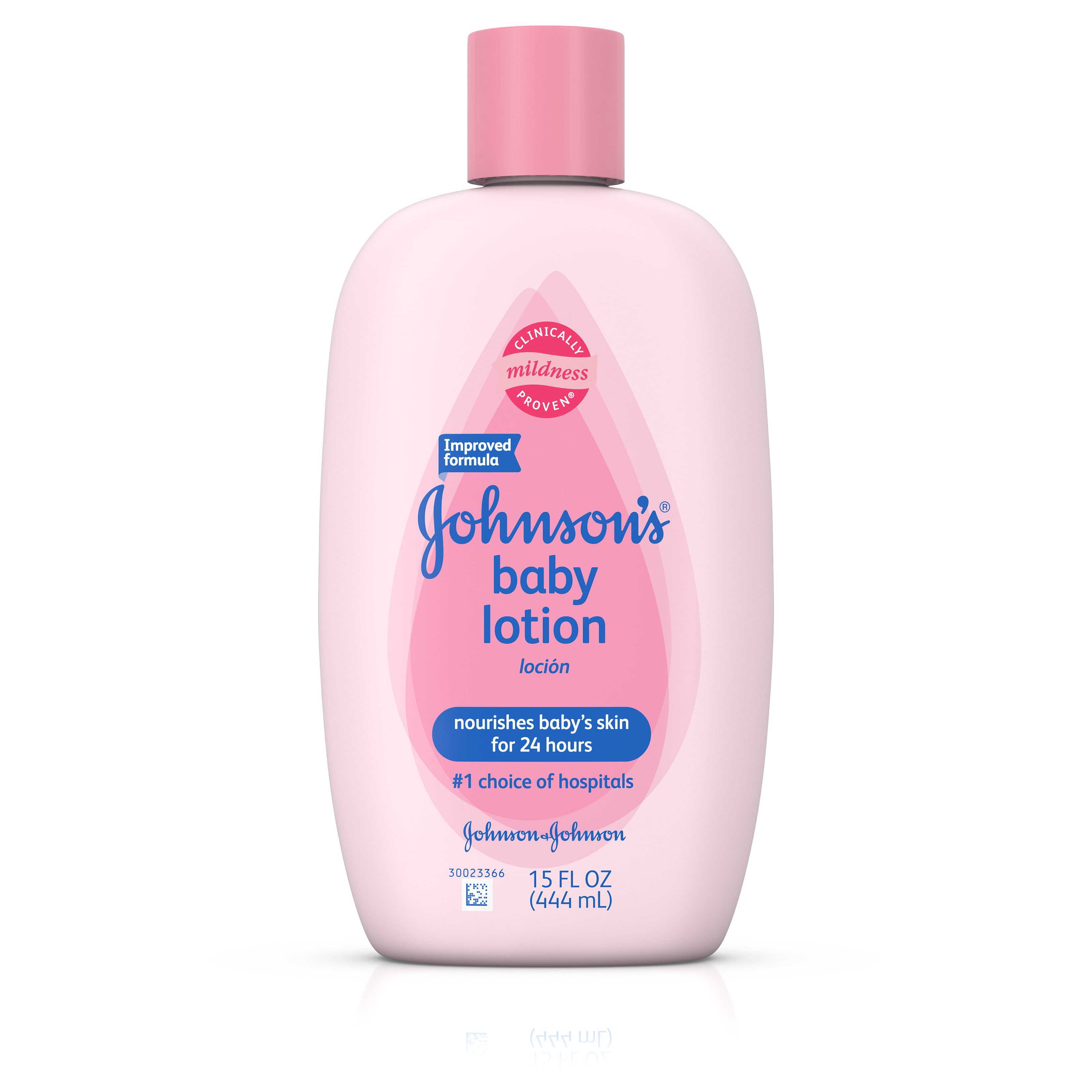
Essential Ingredients to Look for in Baby Lotions
When selecting a baby lotion, knowing what goes into the product is crucial. Ingredients matter, especially for sensitive skin. Let’s look for key components that make a lotion safe and soothing for little ones.
- Hypoallergenic Formulas: Always pick lotions labeled hypoallergenic. They are less likely to cause allergic reactions.
- Natural Moisturizers: Ingredients like aloe vera and shea butter are gentle and hydrate effectively.
- Nourishing Oils: Oils like almond, coconut, or jojoba can deeply moisturize without irritation.
- Fragrance-Free: Scents can irritate sensitive skin. Choose unscented lotions to avoid this.
- Vitamin E: A powerful antioxidant, it helps protect and repair skin.
- Glycerin: It’s a gentle humectant that attracts moisture to the skin.
Check labels for these ingredients when you shop for baby lotion. They help maintain moisture and protect tender skin without harsh effects.
How to Identify Sensitive Skin in Infants
Identifying sensitive skin in infants is vital to prevent discomfort and allergic reactions. Here are signs to watch for:
- Redness and Rashes: Look out for patches of redness and sudden rashes on your baby’s skin.
- Dry Patches: Dry, flaky skin can indicate sensitivity, especially when it recurs.
- Reactions to Products: If redness or rashes appear after using a new baby lotion, it may be too harsh.
- Extreme Softness: Delicate skin that feels unusually soft may be more vulnerable.
- Irritability: Babies may become fussy when their skin is uncomfortable, a possible sign of sensitivity.
It’s best to consult with a pediatrician if you notice these symptoms. They can offer guidance on how to care for your infant’s skin. Keep an eye on your baby’s skin after each application of lotion, and select products carefully, aligning with the need for gentle baby lotions.
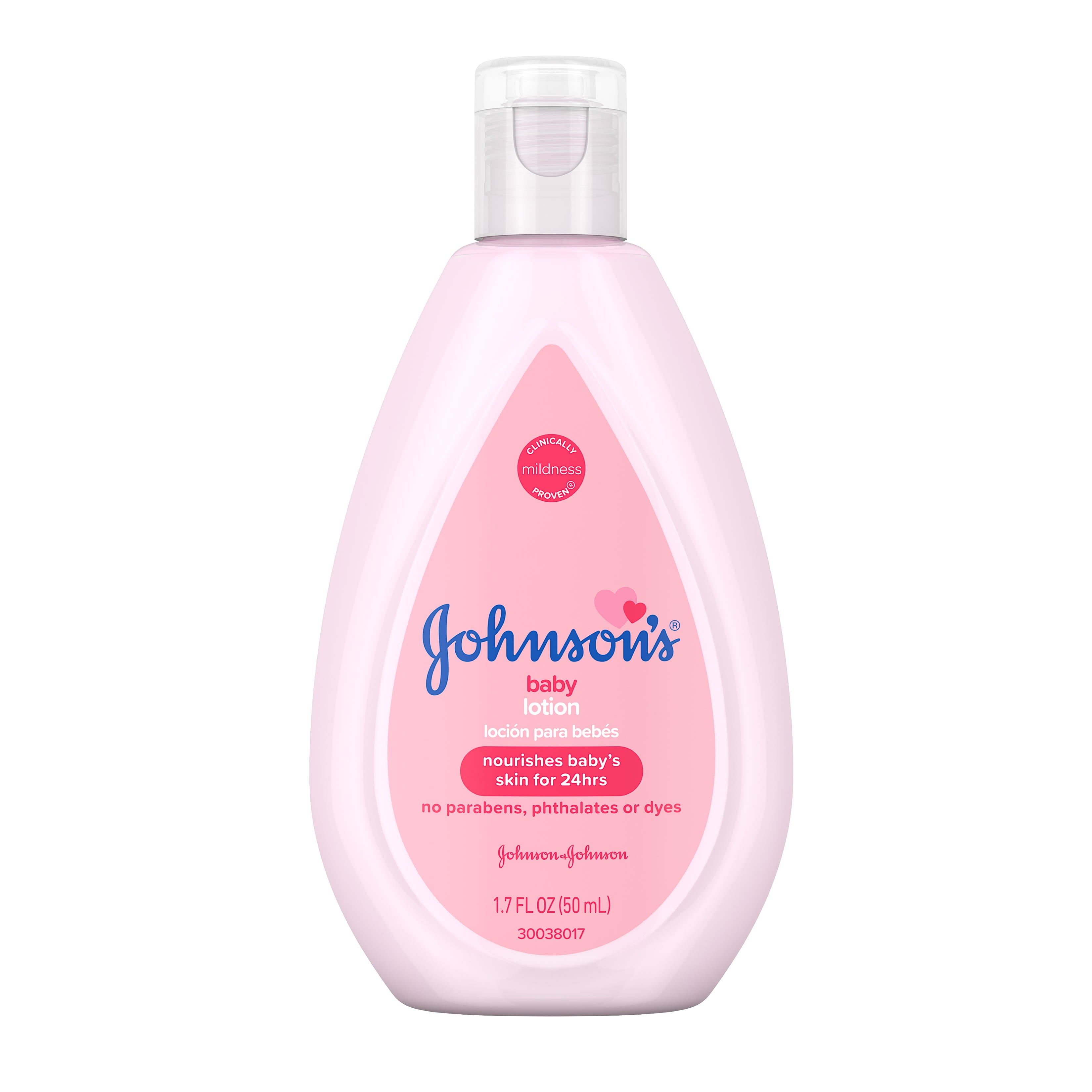
Top Recommended Baby Lotions for Sensitive Skin
Finding the best baby lotion for sensitive skin is key to soothing and protecting your little one’s delicate skin. From an array of products available, we have narrowed down some top recommendations that align with the safety and care your baby deserves.
- Fragrance-Free Lotions: Choose lotions that have no perfumes. They are safer for sensitive skin.
- Certified Organic Products: Look for lotions with certified organic ingredients. They are less likely to harm.
- Brands with a Pediatric Focus: Some brands specialize in baby products. Trust them for their research and quality.
- Minimal Ingredient Lists: The fewer ingredients a lotion has, the better it is for sensitive skin.
- Proven Mildness: Select lotions with a label stating ‘clinically proven mildness’. This indicates a gentle formula.
- Paraben-Free Products: Avoid lotions with parabens. They can irritate and cause harm.
Before buying a lotion, read reviews and product details carefully. Choose products designed with sensitive skin in mind. Doing so helps ensure your baby receives the gentlest care possible.
Avoiding Common Irritants in Baby Lotions
When selecting a baby lotion for sensitive skin, it is important to avoid common irritants. Many products contain ingredients that can trigger irritation or allergic reactions in infants. To ensure the comfort and health of your baby’s skin, let’s examine what to steer clear of.
- Artificial Colors: Synthetic dyes in lotions are unnecessary and can lead to irritation.
- Alcohol: It can dry out the skin and cause discomfort, so it’s best to avoid.
- Synthetic Fragrances: While they may smell nice, they are a top cause of skin reactions.
- Parabens: These preservatives can be harsh on delicate skin and may disrupt hormones.
- Sulfates: Often found in cleansing products, they can strip the skin of natural oils.
- Phthalates: These chemicals can be found in fragranced lotions and are best avoided.
By reading labels and being mindful of these common irritants, you can select a gentle and safe baby lotion. Remember, the simpler the ingredient list, the better for your baby’s sensitive skin. Opt for lotions with clear, straightforward formulations that nurture and protect without the unnecessary additives.
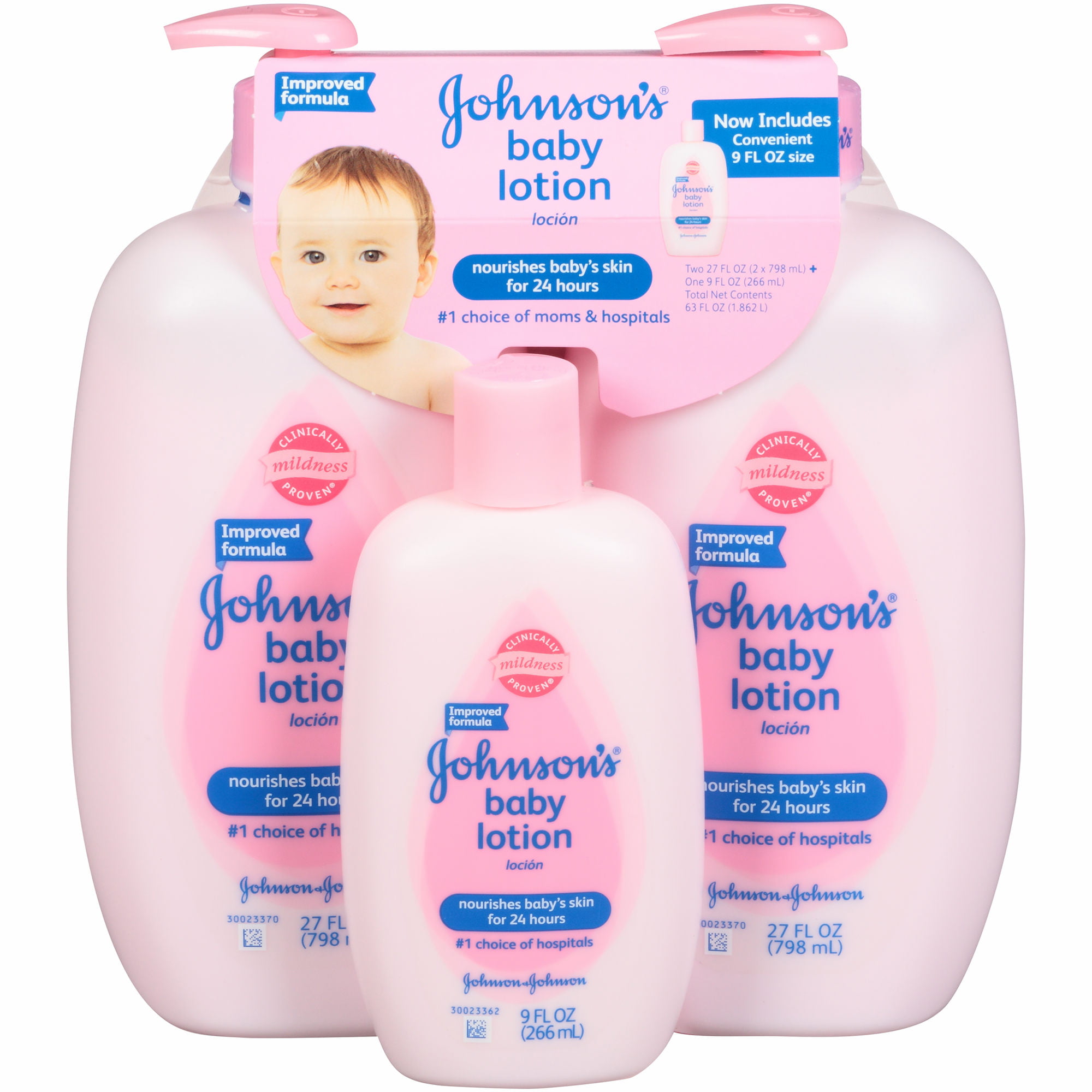
How to Apply Lotion to Your Baby’s Sensitive Skin
Applying lotion to a baby’s sensitive skin requires a gentle touch and careful steps. Follow these tips for a smooth application:
- Clean and Dry: Before lotion, make sure your baby’s skin is clean and completely dry.
- Warm the Lotion: Rub the baby lotion between your hands to warm it up.
- Use Small Amounts: Start with a small amount of lotion. You can always add more.
- Gentle Application: Gently massage the lotion into your baby’s skin using soft, circular motions.
- Avoid Face and Hands: Skip applying lotion on the baby’s face and hands to prevent ingestion.
- Patch Test: Do a patch test for new lotions to check for reactions before full use.
- Nighttime Routine: Incorporate lotion application into the nighttime routine to help relax your baby.
Remember to use baby lotion formulated for sensitive skin. This will help keep your baby comfortable and reduce the risk of irritation. Always monitor your baby’s skin for any signs of discomfort and discontinue use if negative reactions occur.
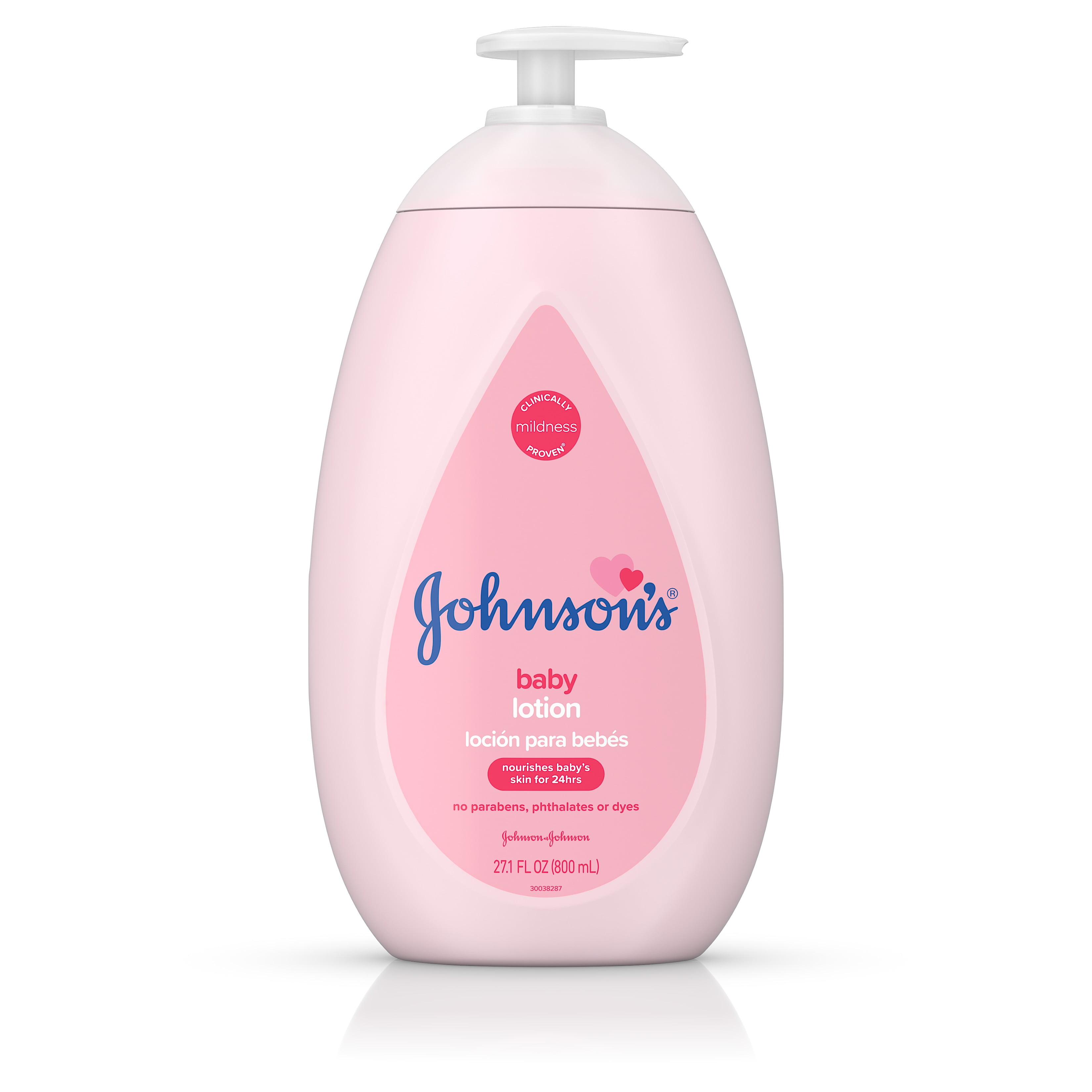
The Role of Natural and Organic Lotions
In the world of baby lotions, natural and organic products hold a special place. These lotions are crafted with ingredients from nature, minimizing the risk of irritation. With more parents becoming conscious of what goes on their baby’s skin, natural and organic lotions are gaining popularity. They provide the peace of mind that comes from using products free of synthetic additives.
Why Choose Natural and Organic: Natural and organic baby lotions avoid harsh chemicals. They often include plant-based ingredients which are gentle on sensitive skin. Parents choose them to limit their baby’s exposure to potential toxins.
Enhanced Skin Nourishment: These lotions contain vitamins and minerals from natural sources. This can boost the skin’s health and resilience. Ingredients like organic shea butter and aloe vera offer rich hydration.
Environmental Benefits: By using natural and organic lotions, parents also support sustainable farming practices. These products often have eco-friendly packaging as well, contributing to environmental conservation.
Regulations and Standards: Look for certifications like USDA Organic or ECOCERT. These marks indicate strict standards in ingredient sourcing and production have been met. It adds an extra layer of trust for cautious buyers.
Parents interested in natural and organic baby lotions should read labels carefully. Verify that the product meets organic standards and doesn’t include any hidden irritants. Always choose lotions tailored specifically for sensitive baby skin to ensure the best care for your little one.
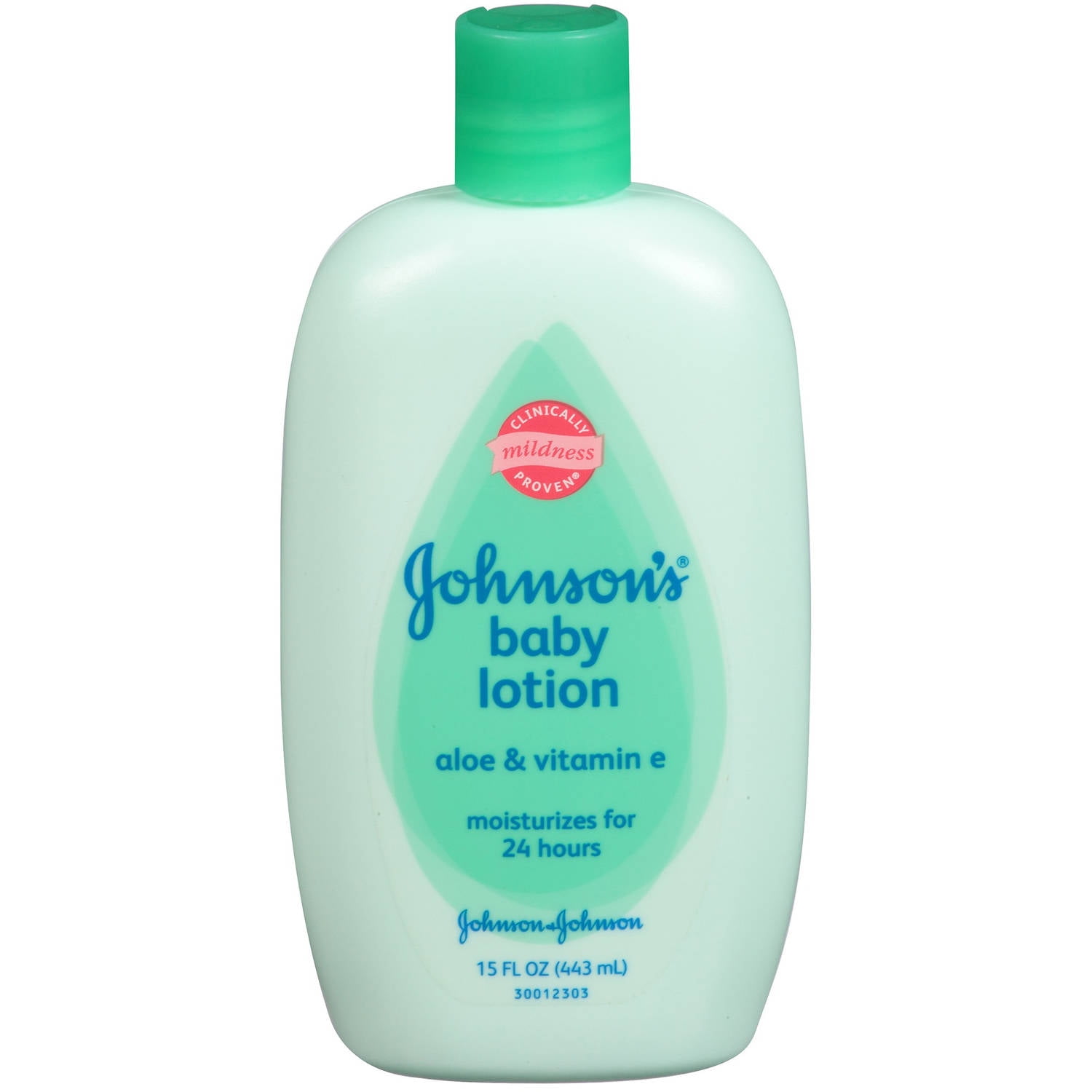
What Dermatologists Say About Baby Lotion for Sensitive Skin
Dermatologists play a key role in guiding parents to care for sensitive baby skin. They stress the importance of choosing baby lotion wisely. A good baby lotion can soothe and shield delicate skin. Here are dermatologist-backed tips for selecting the right lotion.
- Gentle is Best: Dermatologists recommend lotions that are gentle and mild.
- Hydration is Key: A lotion should moisturize without blocking pores.
- Test for Allergies: A patch test can help avoid allergic reactions.
- Simple Ingredients: Opt for products with fewer and clearer ingredients.
- Regular Skin Checks: Watch for changes in your baby’s skin after using lotion.
Dermatologists often suggest lotions with ceramides and hyaluronic acid for hydration. These ingredients help retain moisture and repair the skin barrier. Lotions with a simple ingredient list are less likely to cause a reaction. Parents should check their baby’s skin regularly for any signs of irritation. It’s also wise to patch test a new lotion before use.
Always read labels and choose lotions designed for sensitive skin. Baby lotions that meet dermatologists’ standards can keep your baby’s skin healthy and comfortable.
